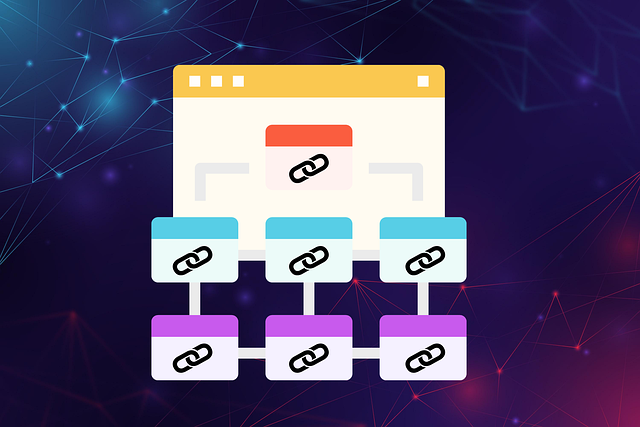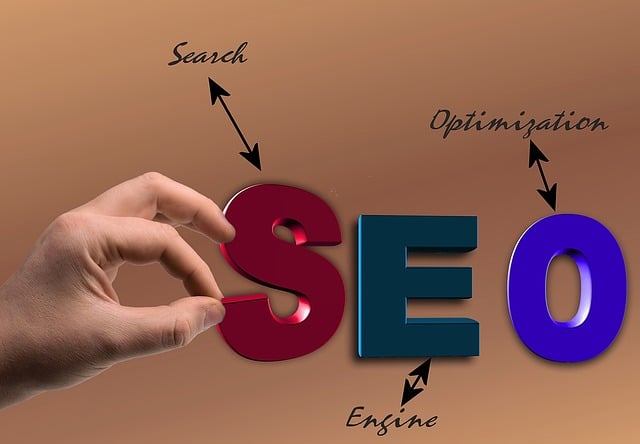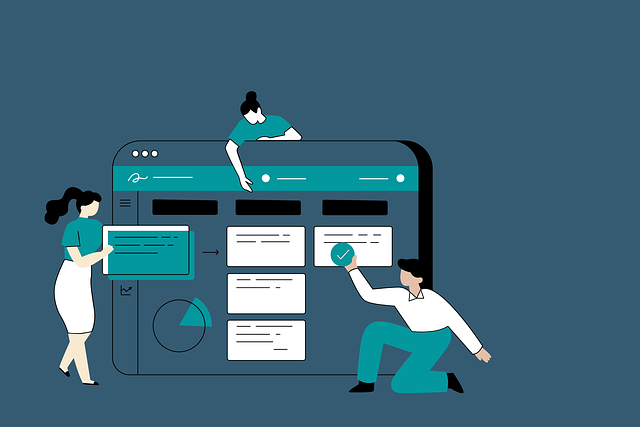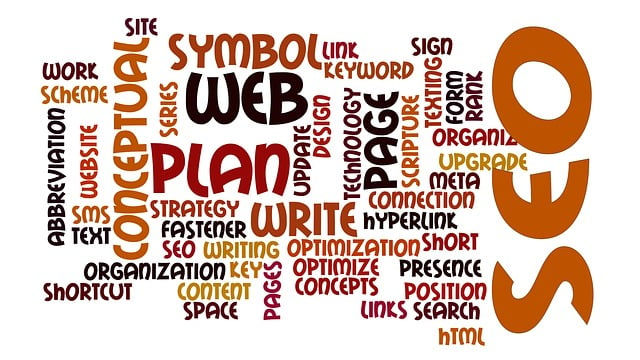SEO Workshops for Agencies are essential in equipping professionals with the knowledge to boost online presence and rankings. These workshops cover critical on-page SEO elements like keyword research, content optimization, meta tag management, mobile-friendliness, and image optimization. They educate participants on strategic heading structure, internal linking, and regular audits to maintain performance. By addressing these topics, agencies can deliver tailored insights, enhance user experiences, and improve search engine rankings for their clients in today's digital landscape.
On-Page SEO is an indispensable skill for agencies aiming to deliver exceptional search engine rankings. This comprehensive guide, tailored for SEO workshops, equips agencies with strategies to empower their clients. From mastering fundamentals to optimizing complex elements, we break down key tactics. Learn how to identify crucial components like keywords, titles, and meta descriptions, structure websites for user-friendliness, craft high-quality content, and leverage headings, images, internal linking, mobile optimization, and regular audits. Elevate your SEO Workshops for Agencies today!
Understanding On-Page SEO Fundamentals for Effective Workshops

Understanding the fundamentals of On-Page SEO is crucial for conducting effective workshops, especially for digital marketing agencies offering SEO services. These workshops play a pivotal role in educating clients about optimizing their online presence and boosting search engine rankings. By mastering On-Page SEO concepts, agencies can ensure that their clients receive actionable insights tailored to their unique needs.
Workshops should cover essential topics such as keyword research, on-page content optimization, meta tag management, and the importance of mobile-friendliness. Participants must learn how to conduct in-depth keyword analyses to identify relevant terms for their target audience. Additionally, they should grasp effective strategies for creating compelling meta titles and descriptions that entice users while adhering to SEO best practices.
Identifying Key Elements: Keywords, Titles, and Meta Descriptions

In the realm of on-page SEO, identifying key elements is akin to navigating a vibrant tapestry where each thread holds significance. Among these, keywords, titles, and meta descriptions stand out as fundamental components that significantly influence search engine optimization (SEO) for clients. Keywords are the backbone, providing insights into what potential customers are searching for. They guide content creation, ensuring relevance and capturing the essence of your client’s services or products.
Titles and meta descriptions, as intricate elements, play a pivotal role in the initial stages of user engagement. Crafting compelling titles that incorporate targeted keywords can significantly enhance click-through rates. Similarly, meta descriptions, with their concise yet descriptive nature, offer a glimpse into what users can expect, further enticing them to explore your client’s online offerings. SEO Workshops for Agencies often emphasize these aspects, as they are integral to attracting and retaining the digital crowd.
Optimizing Website Structure for Better User Experience

Optimizing website structure is a key aspect of On-Page SEO, and it significantly impacts user experience. A well-organized site with logical navigation allows visitors to easily find what they’re looking for, encouraging them to explore further. This includes creating a hierarchical structure with clear categories and subcategories, making use of breadcrumbs, and ensuring fast loading times. These practices not only enhance usability but also send positive signals to search engines, improving rankings in SEO Workshops for Agencies.
A user-friendly website structure should be intuitive, with consistent placement of menus and links. Internal linking strategies that connect relevant pages together can boost the site’s authority and help distribute page rank efficiently. Additionally, optimizing meta titles and descriptions for each page ensures that users get a clear idea of what to expect when they click through from search results, potentially increasing click-through rates and reducing bounce rates.
The Role of High-Quality Content in SEO Strategies

High-quality content is a cornerstone of any successful SEO strategy and an essential element that sets apart top-performing agencies from their competitors. When it comes to on-page optimization, content creation goes beyond mere keyword stuffing; it involves crafting informative, engaging, and valuable pieces that resonate with the target audience. Effective content not only attracts visitors but also encourages them to explore further, reducing bounce rates and increasing time spent on the site—all critical factors for boosting search engine rankings.
SEO Workshops for Agencies play a pivotal role in equipping professionals with the knowledge and skills needed to create such content. These workshops delve into best practices, including understanding user intent, conducting thorough keyword research, and optimizing content for both search engines and human readers. By focusing on these aspects, agencies can ensure that their clients’ websites not only attract organic traffic but also deliver a seamless user experience, ultimately leading to higher conversion rates and better business outcomes.
Utilizing Headings and Subheadings Efficiently

Utilizing headings and subheadings effectively is a best practice in on-page SEO, especially for SEO workshops for agencies. Well-structured content with clear hierarchy helps search engines understand the context and intent behind each section. H1 tags should be used for main headings to indicate the primary topic of the page, while H2s, H3s, and so on, can be employed for subheadings to break down content into digestible chunks. This not only enhances readability but also aids in conveying key messages to both users and search engines.
By strategically placing keywords within these headings, agencies can boost their SEO efforts. For instance, including target keywords naturally in H1s and H2s can improve visibility for relevant searches. However, it’s crucial to maintain a balance; overusing headings or stuffing them with keywords may lead to poor user experience and potential penalties from search engines. Thus, creating content that is both keyword-rich and reader-friendly is the key to effective heading optimization in on-page SEO.
Image Optimization: Tips for Agencies to Teach Clients

Image optimization is a key aspect of on-page SEO that often goes overlooked. Agencies can play a pivotal role in educating clients about the importance and techniques involved. Through comprehensive SEO workshops, agencies can empower their clients with actionable strategies to enhance visual content. One of the primary tips to impart is the use of descriptive file names and alt tags for images, ensuring search engines understand the context, which improves click-through rates and overall discoverability.
Additionally, teaching clients about image compression techniques without sacrificing quality is essential. Optimized images not only reduce loading times but also contribute to better page performance, a factor that search engines consider when ranking websites. Agencies can offer guidance on choosing the right file formats (JPEG, PNG, WebP) and utilizing online tools for efficient compression, ultimately helping clients create visually appealing content that aligns with SEO best practices.
Internal Linking: A Workshop Focus Area for Comprehensive SEO

Internal linking is a critical component often overlooked in SEO workshops for agencies, yet it plays a pivotal role in enhancing website performance and visibility. It involves creating strategic links between pages on a website to improve user experience and search engine crawling efficiency. By connecting relevant content within your site, you can direct users and search engines to valuable information, fostering better engagement and potentially reducing bounce rates.
In the context of SEO workshops, agencies should emphasize the art of internal linking as a powerful tool for comprehensive optimization. Through structured link building within pages, websites can establish a clear hierarchy, making it easier for search algorithms to understand and index content. This technique also allows for the efficient distribution of page authority, which is essential for improving overall website rankings in search engine results.
Mobile Optimization: Essential for On-Page SEO Success

In today’s digital era, mobile optimization is no longer a luxury but an essential component of successful on-page SEO strategies. With a vast majority of internet users accessing websites through their smartphones and tablets, search engines prioritize mobile-friendly content when ranking pages. This means that if your website isn’t optimized for mobile devices, you’re missing out on potential visibility and traffic.
SEO workshops for agencies play a crucial role in educating professionals about the importance of mobile optimization. These workshops should cover best practices such as ensuring fast loading times on mobile networks, implementing responsive design to deliver optimal user experiences across all screen sizes, and optimizing content for touch interactions. By integrating these strategies into their on-page SEO approach, agencies can help clients achieve better search engine rankings, increased engagement, and ultimately, improved business outcomes.
Regular Audits and Updates: Sustaining On-Page SEO Performance

Regular audits and updates are essential components of sustaining on-page SEO performance. These continuous assessments allow agencies to stay ahead of algorithm changes and evolving search engine trends. By conducting comprehensive SEO workshops for agencies, professionals can identify areas for improvement within a client’s website. Such workshops enable in-depth analysis of meta tags, content optimization, keyword strategy, and site structure, ensuring that each element aligns with best practices.
Through regular updates, agencies can make data-driven decisions to enhance page rankings. This includes refining title tags, optimizing images, improving user experience, and addressing technical issues like broken links or slow loading times. By implementing these changes and staying current with SEO best practices, agencies can help clients maintain and even improve their search engine visibility over time.
